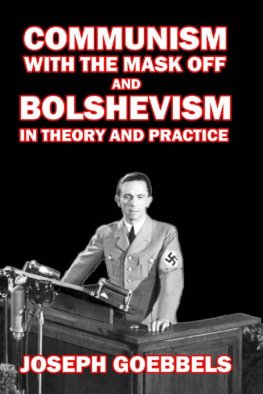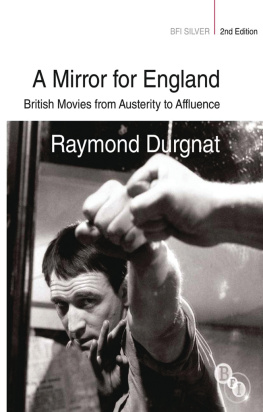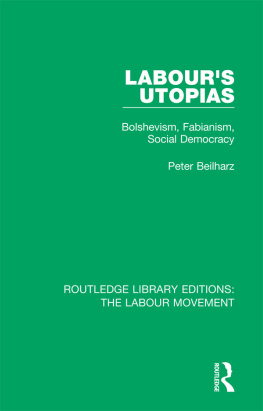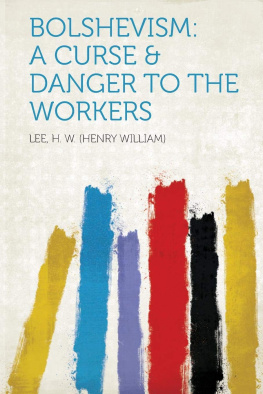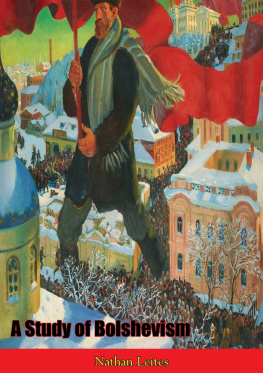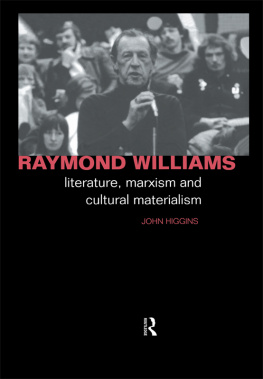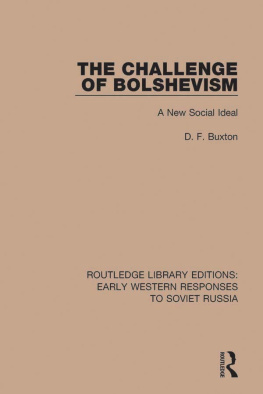ROUTLEDGE LIBRARY EDITIONS: POLITICAL THOUGHT AND POLITICAL PHILOSOPHY
Volume 13
THE ORIGINS OF BRITISH BOLSHEVISM
THE ORIGINS OF BRITISH BOLSHEVISM
RAYMOND CHALLINOR
First published in 1977 by Croom Helm Ltd
This edition first published in 2020
by Routledge
2 Park Square, Milton Park, Abingdon, Oxon OX14 4RN
and by Routledge
52 Vanderbilt Avenue, New York, NY 10017
Routledge is an imprint of the Taylor & Francis Group, an informa business
1977 Raymond Challinor
All rights reserved. No part of this book may be reprinted or reproduced or utilised in any form or by any electronic, mechanical, or other means, now known or hereafter invented, including photocopying and recording, or in any information storage or retrieval system, without permission in writing from the publishers.
Trademark notice: Product or corporate names may be trademarks or registered trademarks, and are used only for identification and explanation without intent to infringe.
British Library Cataloguing in Publication Data
A catalogue record for this book is available from the British Library
ISBN: 978-0-367-21961-1 (Set)
ISBN: 978-0-429-35434-2 (Set) (ebk)
ISBN: 978-0-367-26571-7 (Volume 13) (hbk)
ISBN: 978-0-429-29400-6 (Volume 13) (ebk)
Publishers Note
The publisher has gone to great lengths to ensure the quality of this reprint but points out that some imperfections in the original copies may be apparent.
Disclaimer
The publisher has made every effort to trace copyright holders and would welcome correspondence from those they have been unable to trace.
THE ORIGINS OF BRITISH BOLSHEVISM
RAYMOND CHALLINOR
1977 Raymond Challinor
Croom Helm Ltd, 210 St Johns Road, London SW11
British Library Cataloguing in Publication Data
Challinor, Raymond
The origins of British bolshevism.
1. Revolutionists Great Britain 2. Great
Britain Politics and Government 19011936
I. Title
322.420941 DA566.7
ISBN 0-85664-448-X
First published in the United States 1977
by Roman and Littlefield, Totowa, New Jersey
Library of Congress Cataloging in Publication Data
Challinor, Raymond
The origins of British bolshevism.
Bibliographical notes
Includes index
1.CommunismGreat BritainHistory. 2. Socialism
in Great BritainHistory. I. Title.
HX243.C43 1977 335.430941 77-3576
ISBN 0-87471-985-2
Printed in Great Britain by offset lithography by
Billing & Sons Ltd, Guildford, London and Worcester
CONTENTS
British revolutionary socialism was born in Paris on 27 September 1900. There, at the congress of the Second International, delegates fiercely debated the propriety of Alexandre Millerand and two other French socialists joining the government of Waldeck-Rousseau. It was not merely that the government was pledged to administer capitalism, and would therefore inevitably carry out anti-working class measures, but the Cabinet contained General Gallifet, the butcher of the Paris Commune. Twenty thousand communards had been murdered at his command. This made left-wing delegates even more incensed. They heckled Jean Jaures, the veteran French socialist, when he put the case for participation in the Government. He argued that the public would condemn the French Socialist Party, regarding it as an abdication of responsibility, if they shut the door in Waldeck-Rousseaus face. Religious and military reactionaries threatened the Republic. The duty of French socialists was to unite with others to defend parliamentary democracy and freedom.
Speeches for and against were made amid cheers and counter-cheers until Karl Kautsky put forward what he hoped would be considered a compromise resolution. It condemned, in general terms, participation by socialists in capitalist governments, but nevertheless argued that in exceptional circumstances this might be necessary. When congress passed the resolution, the left exploded with anger. They taunted the supporters of Millerand with shouts of Vive la Commune and Go to Chalons a reference to the place where French soldiers had recently killed strikers.
Among the vociferous opposition stood a solitary member of the British delegation. All the rest had supported Millerand and voted for the Kautsky resolution, but George S. Yates quite unequivocally opposed class collaboration. He returned to Britain determined to continue the struggle against all Millerands, be they French, British, or any other nationality. Yates was a talented young man. He spoke fluent French and German, had an impressive knowledge of socialist theory, and was a dedicated internationalist. Indeed, he returned from Paris with the words and music of The Internationale, which he introduced into Britain.
Yates visualised the struggle in a world-wide context. A big wave of opportunism is passing through the ranks of the international socialist party. He cited Sweden, where a section of the Social Democrats kept the Liberals in office, as well as Italy and Britain, where socialists dropped their principles to make alliances with non-socialists. Even the conduct of the Second International exemplified this trend. Significantly, he referred to the Kautsky motion in the same terms as Lenin: it was a caoutchouc that is to say, India rubber resolution that could be stretched in any direction. Most of the pressure, Yates observed, was liable to come from right-wingers, anxious to establish for themselves a cosy niche within capitalism. Hence he thought it necessary to build a new party, as we have no ambition to swim with the tide.
Like most British Marxists, Yates belonged to the Social Democratic Federation. It was within this organisation that he first unfurled the flag of revolt. The initial task was to establish a nationwide list of contacts. Then they could come together and publish a paper. This would not simply give them an organ for expressing their views; it would act as an organiser, bringing closer contact and regular activity.
In his efforts, Yates received valuable help from James Connolly, the Irish revolutionary, later to be the leader of the 1916 Easter Uprising. For a long time, Connolly had been exasperated by the half-hearted, compromising policies of British socialists. The Paris congress merely served as the final insult. It was not only the Kautsky resolution Connolly pointed out that since Millerand joined Waldeck-Rousseaus cabinet 12 strikes had been smashed by the military but also the attitude adopted towards Ireland. The British delegation had argued that the Irish Republican Socialist Party, of which he was a leader, did not have a right to separate representation at the congress. Ireland was part of Great Britain, not an independent country. While congress did not accept this argument, such conduct simply served to convince him of the extent to which imperialist conceptions had corroded the socialism of the British delegation.
In May 1901, James Connolly sailed to Scotland to help George Yates with his campaign. In a sense, he was just repaying a debt. Four years before, Yates had gone over to Dublin and assisted the IRSP with its demonstrations against Queen Victorias Diamond Jubilee celebrations. When clashes occurred between socialists and loyalists, Yates figured prominently in the mele and, as a result, lost his job. Although compelled to return to Scotland, Yates still remained in Connollys high esteem and arranged Connollys speaking tour for him.




